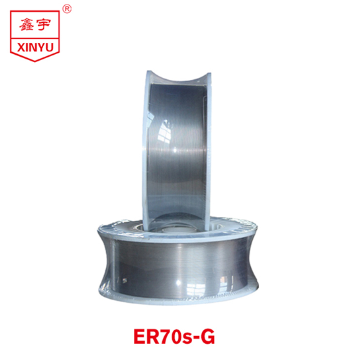How to Prevent And Respond to Deterioration of Welding Wire?
How to prevent it
The most common ways to prevent it are to learn proper storing techniques, as well as use deoxidizing agents and shielding gases.ㆍDeoxidizers
Deoxidizing agents vary. Silicone, manganese, and aluminum, and occasionally, titanium and zirconium, are the most common.
Essentially, deoxidizers defuse the oxygen as the metal cools. It reduces the chances of rust without compromising welding performance or arc quality.

Although manganese provides deoxidizing capabilities and increases the strength of the overall weld, it causes some health concerns due to the fumes it produces.
Silicone works well to provide a smooth and flat weld product and aluminum works well as an added deoxidizer since too much aluminum compromises the stability of the weld. The more aluminum in the filler metal, the more brittle the weld is.
ㆍShielding Gases
Shielding gases minimize exposure to the atmosphere. However, depending on the welding process needed, a shielding gas may or not may be required. Once the welding process has been determined and shielding gas is required, the next step is choosing the right gas.
Shielding gases are typically used in MIG welding or GMAW. The most common shielding gases are argon, helium, carbon dioxide, and oxygen.
ㆍCarbon Dioxide
Out of these, carbon dioxide is the most common of the shielding gases. It is inexpensive and is the only one that can be used in its pure form without the use of inert gases. While these are intriguing factors to consider, there are some concerns on the actual effectiveness of carbon dioxide, since it produces a less stable arc and more spatters when mixed with other gases.
ㆍHelium
Helium is similar to carbon dioxide in terms of its functionality. However, it is more expensive and it requires a lot more of it to achieve the same result.
ㆍOxygen
Oxygen serves a specific function for stainless steel, mild carbon, and low alloy welds. It improves arc stability and penetration. Even though it can perform these functions, since it is oxygen, it causes oxidation of the weld metal, which allows the welding wire to rust.
ㆍArgon
Argon, on the other hand, is best used in a mixture to increase arc stability. If the weld uses aluminum, magnesium, or titanium, it is preferable to use one hundred percent pure argon, since these metals are non-ferrous. This means that these metals do not contain iron, are not magnetic, and are more resistant to corrosion.
Argon conducts a low amount of heat, which is why it is mainly used with the metals mentioned above. Even though these metals are strong, they are lightweight and do not require a high amount of heat to manipulate them.
Other Considerations
Another thing to consider when figuring out whether wires can go bad is the consistency of the wire. No two wires or electrodes are the same. When looking for the quality of the wire, look for consistent chemistry, wire diameter, and arc performance. Any inconsistencies affect the functionality, the operating cost, and the overall quality of the weld.
Additionally, proper handling technique plays a major role in the maintenance of welding wire. Moisture and cool weather cause a lot of damage. Rust and other contaminants damage the quality and integrity of the filler metal. Because of this, store welding wire in a temperature-controlled storage cabinet when it is not being used.
Following these simple procedures and welding wire will last for years without going bad. If there is any bad wire, read below for what to do.
What to do with bad wire
Usually, when something goes bad, the first thought is to throw it away. However, that does not always have to be the case.
Typically, there is only partial damage to the wire. If so, all one needs to do is remove the damaged wire and the rest of the spool is good as new.
Toss the rusty wire or save it for another project. There are endless possibilities of how rusty wire could come in handy.
In the end, welding wire can go bad, but there are many ways to prevent it. By following those precautions, welding wire could last over ten years and even if it does go bad, there are other options besides throwing it away.
We are a welding wire manufacturer. If you are interested in our products, please contact us now!

评论
发表评论